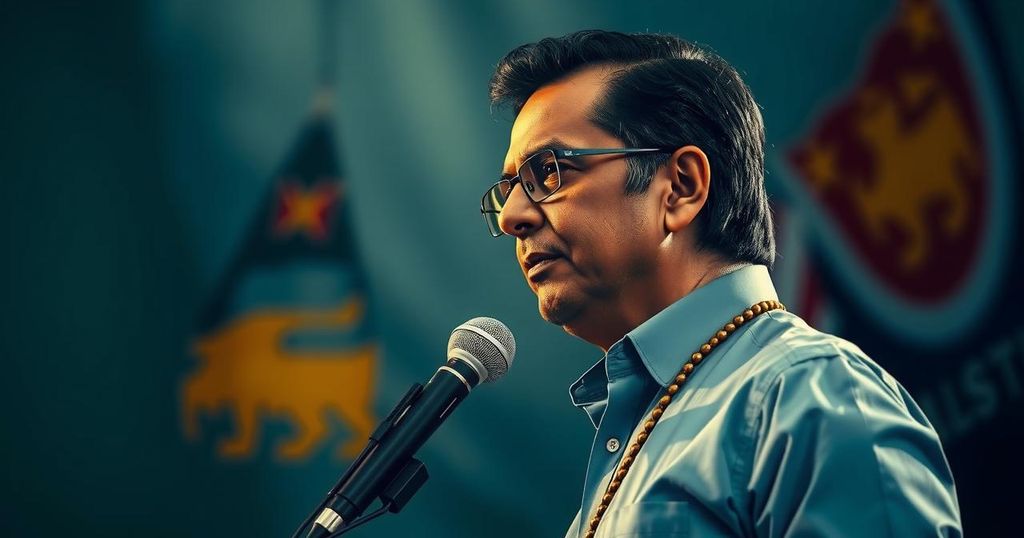Politics
AMERICA, ASIA, AUSTRALIA, CHINA, CUBA, DEMOCRACY, EAST ASIA, FOREIGN POLICY, GOT, GOTABAYA RAJAPAKSA, GOVERNANCE, GOVERNMENT, INDIA, INTERNATIONAL MONETARY FUND, KAKAO, KIM BEOM - SU, MALDIVES, MEXICO, NORTH AMERICA, OCEANIA, PACIFIC, SOUTH, SOUTH - EAST ASIA, SRI LANKA, TALIBAN
Marcus Li
0 Comments
Political Shift in Sri Lanka: An Outsider Emerges Following Turmoil
Sri Lanka recently witnessed a significant political transformation with the election of a new president following the downfall of Gotabaya Rajapaksa due to widespread protests. The country is recovering from an economic crisis marked by debt default and rampant inflation, with improvements being made in economic management and negotiations with creditors. The new president has ties to a Marxist-rooted party, suggesting potential shifts in governance and policy priorities.
In the wake of significant turmoil, Sri Lanka has experienced a remarkable political shift with the ascension of an outsider to the position of president. This change comes two years after the nation defaulted on its debts due to severe challenges such as the Covid-19 pandemic, exorbitant borrowing, and policy missteps. The former president, Gotabaya Rajapaksa, who had close ties with China, was ousted amidst widespread protests, leading to his departure to the Maldives. Currently, the economic landscape has improved, with inflation rates subdued, an International Monetary Fund bailout secured, and agreements reached with creditors regarding debt restructuring. Notably, the new president aligns with a party that has Marxist foundations, suggesting a potentially transformative approach to governance and economic policy. Furthermore, the international dynamics surrounding Sri Lanka continue to evolve, particularly in relation to its previous alliances and new directions under emerging leadership.
Sri Lanka’s recent political developments are set against a backdrop of severe economic crisis. The nation defaulted on its debts in 2021, exacerbated by the pandemic and poor economic management, culminating in rampant inflation and fuel shortages. The ousting of Gotabaya Rajapaksa marked a pivotal moment in Sri Lankan politics, prompting significant changes in leadership. As new leadership stabilizes the economy and mends international relations, the implications of these changes are crucial for the country’s future trajectory.
In summary, Sri Lanka’s shift in presidential leadership not only reflects the nation’s recovery from an economic crisis but also hints at a broader transformation in political dynamics, particularly with the new president’s Marxist affiliations. As the government seeks to rebuild the economy and manage international relationships, the long-term impacts of this political upset will be closely monitored.
Original Source: www.economist.com




Post Comment